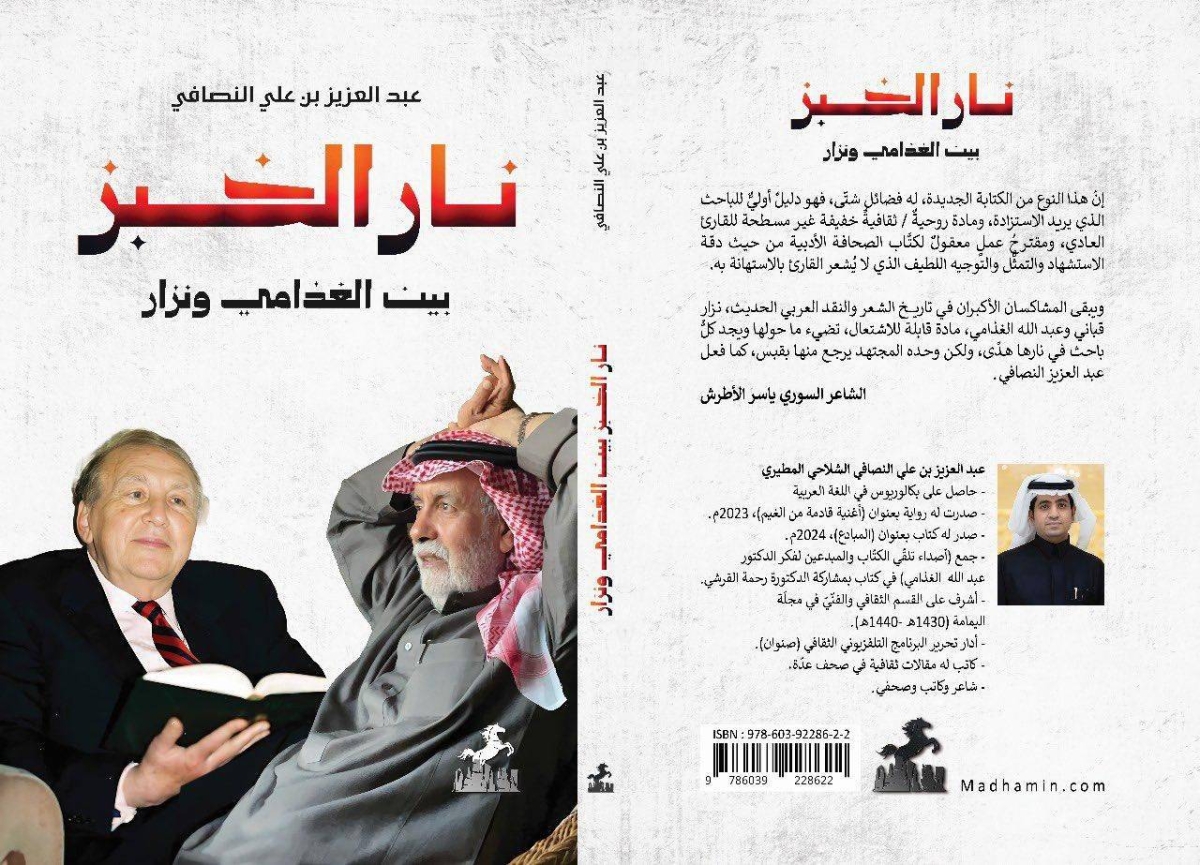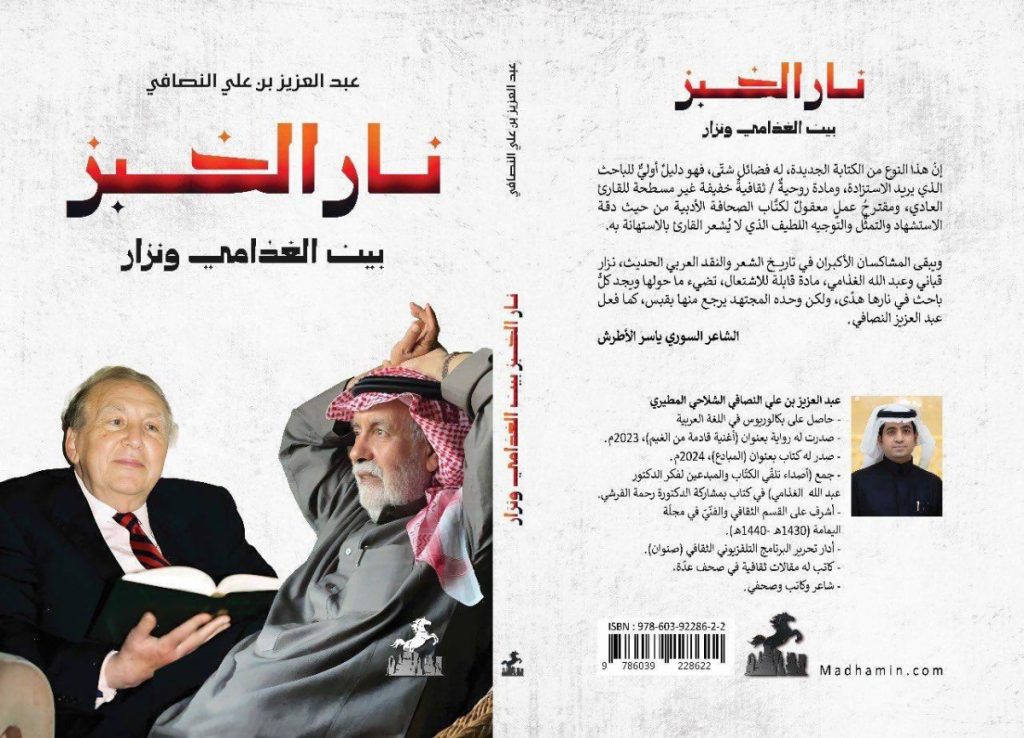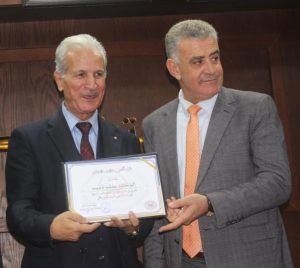In his book “The Fire of Bread Between Al-Ghuthami and Nizar,” published by Madamin Publishing and Distribution, spanning 170 medium-sized pages, poet, writer, and journalist Abdulaziz Al-Nassafi presents a work that combines storytelling and criticism, placing the reader before a rich comparison between two contrasting yet complementary worlds: the world of the poet Nizar Qabbani and the world of the critic Abdullah Al-Ghuthami.
Al-Atrash’s Perspective
Poet Yasser Al-Atrash, in his introduction to the book, viewed the work as a love letter before being a traditional critical study. He adds that Al-Nassafi delivered a professional craft of a skilled journalist, whose work revolves around major questions: Why this article and not others? Why this stance and not its opposite? He concludes that the book is a sincere testimony from the heart of a lover of both men.
Al-Nassafi Between Nizar and Al-Ghuthami
In justifying the combination of these two prominent figures, Al-Nassafi attributed it to the phenomenon of widespread influence. Al-Ghuthami’s books and critical research have reached all parts of the Arab world with successive generations of readers, while Nizar’s poems transcended elites to reach intellectuals, peasants, shepherds, and vendors in Egypt, Sudan, Yemen, and others. Hence, he saw the connection between them justified by their reach, language, and intellectual stance. He hinted that the first to make this comparison was critic Dr. Sami Al-Ajlan.
Book Methodology
Al-Nassafi admitted that his book is not an academic research governed by strict methodology but rather a summary of personal experience and contemplative reading. He relied on various tools: quotation, classification, comparison, induction, and argumentation, with care for the coherence and completeness of the idea without fragmentation or disruption.
Story and Humanity
The book is built on storytelling; the author began with his personal story with Nizar and Al-Ghuthami, then reviewed their childhood, social and cultural circumstances, their relationship with language and audiences, their stances on courage and recklessness, and stopped at provocative issues such as Nizar’s leadership in modern Arabic poetry, Al-Ghuthami’s acceptance of difference and plurality of visions, Nizar’s love for praise, and the criticism directed at both, ranging from objective fairness to blatant attacks.
Between Fairness and Accountability
Al-Nassafi does not dedicate his book to glorification or praise but takes a middle path between fairness and accountability. Sometimes he defends, as he did with Al-Ghuthami against the critical barrages of Sami Al-Ajlan, which Al-Nassafi saw as nothing more than a personal objection to Al-Ghuthami’s narrative taste. At other times, he questions, as he did with Nizar’s famous incident when he refused to sign for a modest girl claiming she was a ghost, while he did not hesitate to sign the leg of another girl who revealed herself to the public!
Here, Al-Nassafi posed a bold rhetorical question with his love for Nizar: How did Nizar reject admiration that came in modest dress but accept admiration that came in a provocative form?
Cultural Map
The book is not merely a gathering between a poet and a critic but an attempt to draw a cultural map that combines the voice of poetry and the voice of criticism. Al-Nassafi presented a work that blends journalism and literature, storytelling and analysis, providing the reader with rich material reflecting Nizar’s presence as a star in the Arab consciousness and Al-Ghuthami’s presence as a pioneering critic and academic model who changed the face of literary study and overturned the mental image of the academic intellectual.














Recommended for you
Exhibition City Completes About 80% of Preparations for the Damascus International Fair Launch
Talib Al-Rifai Chronicles Kuwaiti Art Heritage in "Doukhi.. Tasaseem Al-Saba"
Unified Admission Applications Start Tuesday with 640 Students to be Accepted in Medicine
Egypt Post: We Have Over 10 Million Customers in Savings Accounts and Offer Daily, Monthly, and Annual Returns
His Highness Sheikh Isa bin Salman bin Hamad Al Khalifa Receives the United States Ambassador to the Kingdom of Bahrain
Al-Jaghbeer: The Industrial Sector Leads Economic Growth